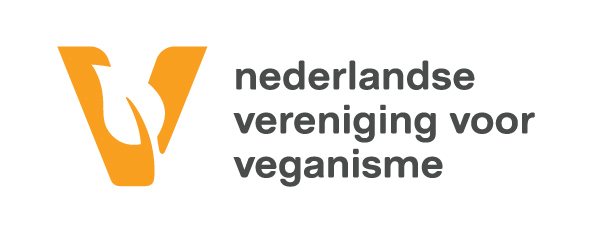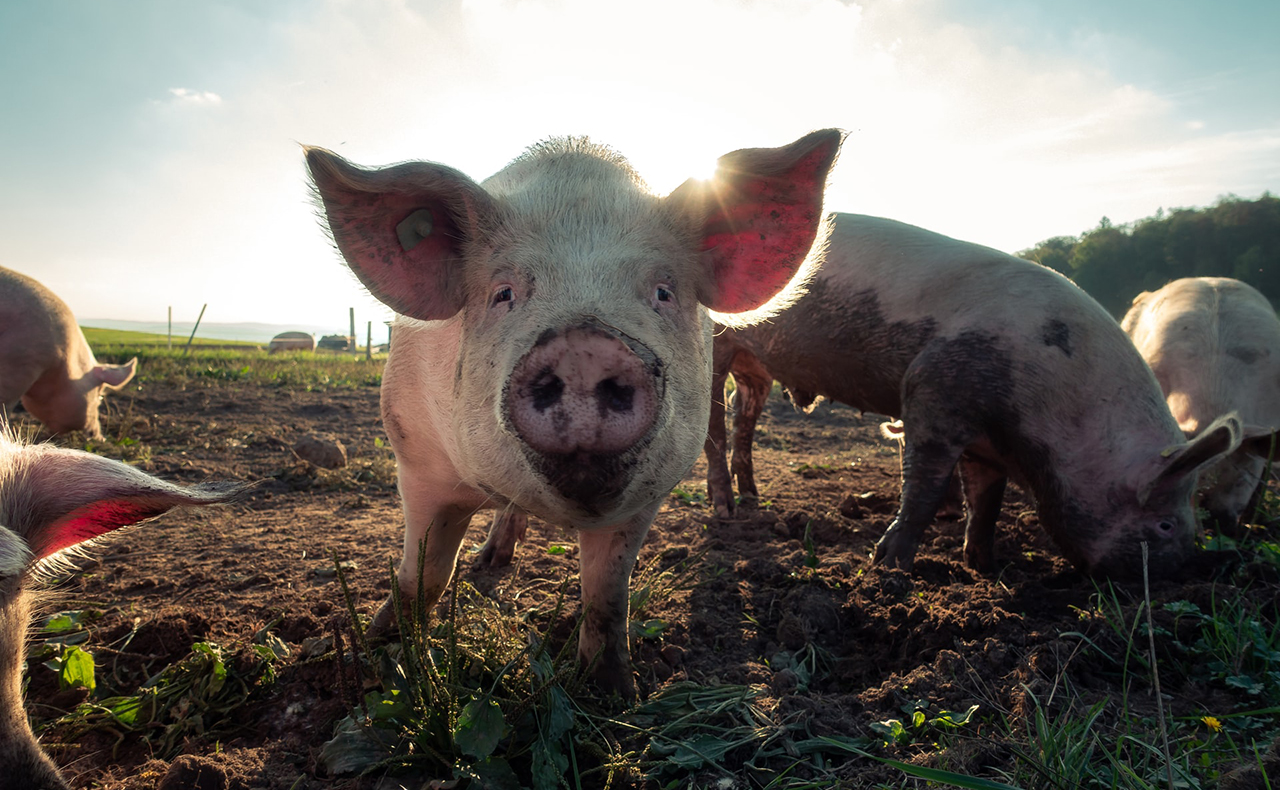Veganism is a way of living that takes the rights of all sentient beings into account. It is a practical application of animal rights, but it also has benefits for nature, the climate, your health and other people. Vegans eat plant-based and avoid other animal-derived non-food products and services. The Nederlandse Vereniging voor Veganisme (Dutch Association for Veganism), or NVV, is the biggest association for, and the main expertise centre on, veganism in the Netherlands.
What is veganism?
Veganism is a way of living: an ethical belief translated into a practical set of customs. The European Court for Human Rights has recognised veganism as a belief system, meaning discrimination on this ground is prohibited in the European Union. The term was coined by Donald Watson in 1944, but the ideas are much older than that. In essence veganism is about not using and killing animals for human benefit.
“Veganism is a way of living which seeks to exclude, as far as is possible and practicable, all forms of exploitation of, and cruelty to, animals for food, clothing or any other purpose.”
In practical terms, vegans do not use animal-based products or services derived from animals. This means vegans eat plant-based and do not eat the body parts of animals (e.g. meat and fish), nor anything produced by the body of an animal (e.g. milk, eggs and honey). Vegans also look carefully at ingredients in mostly plant-based products and will avoid things like candy with gelatine, certain E-numbers or wines clarified with fish-glue.
Veganism is about more than food though. Vegans also do not buy clothes made from animal-derived materials (e.g. leather, wool or silk). Vegans make sure that their personal care products have not been tested on animals. They also reject using animals for entertainment: you won’t find vegans at zoos and they do not ride horses.
The definition of veganism contains the phrase ‘as far as is possible and practicable’. This shows that veganism is an endeavor that is limited by what is possible in a non-vegan world. What is possible and practicable will differ from vegan to vegan based on their personal situation and the acceptance of veganism in their social environment and availability of vegan products in their region.
Why veganism?
When animals are used, humans make choices for animals. Animals that are used are thus not free to make their own choices. Animal use is a violation of animal rights. Veganism is a way of living in which people do not use animals. It is thus an ethical choice to no longer violate animal rights by choosing a vegan way of live. By going vegan, you avoid a lot of animal suffering. Besides avoiding animal rights violations, veganism offers other benefits.
The livestock industry is responsible for a lot of damage to nature and the environment. This is because of greenhouse gas emissions, like methane and CO2, but also because of the pollution of air, water and soil with nitrogen. The industry is also responsible for large-scale deforestation. By going vegan, you no longer support this destructive industry.
A balanced, plant-based diet contains all the nutrients necessary to stay healthy and energetic. By eating plant-based, you reduce the chance of cardiovascular diseases, cancer and several other illnesses.
Livestock farming uses more than 70% of all agricultural lands, but only supplies 17% of all food for humans. Eating animals is therefore an inefficient way of land use. We could produce more food, for more people by no longer eating animal products. By choosing a plant-based diet you can contribute to diminishing world food inequalities.
How to become vegan?
Becoming vegan is easier than you think. In the Netherlands alone there are more than a quarter million vegans. Worldwide there are over 88 million vegans. All these people live without using animals. So can you!
The NVV offers a lot of information in Dutch on going vegan in the Netherlands. If you live in the Netherlands and understand some Dutch, we recommend you browse our website. If you prefer to learn about veganism in English, we can direct you to the following resources.
About the NVV
The NVV is the largest member organisation for veganism in het Netherlands. Moreover, we are the foremost knowledge center on veganism in the country. In our vision, animals should not be conceived of as property, but as living, sentient beings with their own needs and interests. In our ideal world all people are living vegan, with compassion for all human and non-human animals and nature. Veganism has a positive impact on all animals, personal health, nature and the environment. Our mission is inspire people to live vegan and promote this way of living effectively.
The NVV has been a member of the Vegan World Alliance since 2018. The VWA unites national vegan organisations from multiple countries. Our membership allows us to exchange best practices with other members and collaborate with them on the promotion of veganism and thus accelerate the transition to a vegan world.
The NVV has been designated as a Algemeen Nut Beogende Instelling (ANBI or ‘institution in serve of public interests’) by the Dutch tax authority. This means donations to the NVV can be tax deductible, depending on your personal financial circumstances.
To promote veganism and make it more accessible, the NVV undertakes the following activities:

